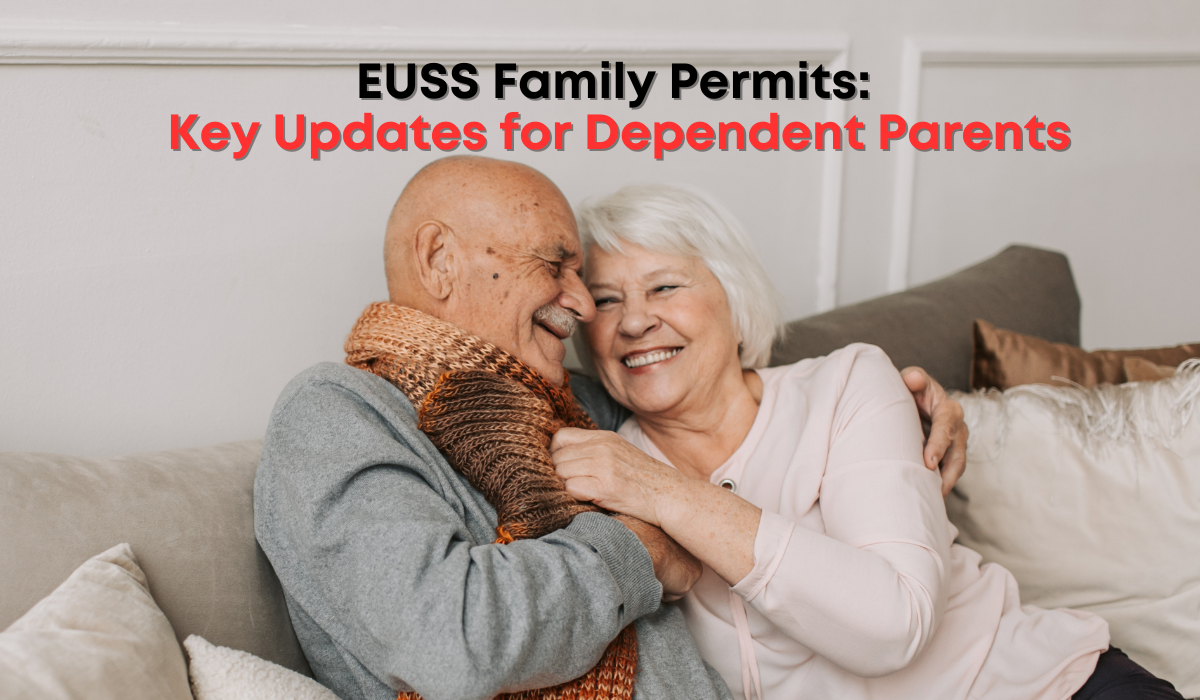The EU Settlement Scheme (EUSS) remains a vital route for dependent parents of EEA citizens residing in the UK to secure their legal status. Through the EUSS Family Permits, eligible individuals can apply to join their loved ones and establish their residency. This reflective article explores the nuanced rules surrounding such applications, including the role of EUSS Family Permits, the implications of recent legislative updates, and practical guidance for applicants navigating the process. For dependent parents, understanding the requirements of EUSS Family Permits is essential to ensure a smooth application experience.
Dependent Parents and the EUSS: An Overview
Under the EUSS, dependent parents of EEA citizens (or their spouse or civil partner) can apply for pre-settled or settled status if they are in the UK. For those outside the UK, an EUSS Family Permit is required. These permits serve as an essential precursor for dependent parents wishing to join their family in the UK, provided specific conditions are met.
Application Deadline and Eligibility
Dependent parents must apply as the “joining family member of a relevant sponsor.” To qualify, the familial relationship must have existed before 31 December 2020 and continue to exist at the time of application. Significant changes introduced to the Immigration Rules on 8 October 2024 have refined the deadline requirements.
Specifically, joining family members are now required to submit their applications within three months of their first arrival in the UK after 31 December 2020. Late applications may still be considered if reasonable grounds for the delay are demonstrated. For an in-depth examination of these rule changes, refer to our article EU Settlement Scheme (EUSS): Key Updates for Family Members.
Defining a Dependent Parent Under Appendix EU
Appendix EU outlines the criteria for dependent parents, defining them as:
- Direct Relatives in the Ascending Line: This includes parents, grandparents, great-grandparents, and adoptive parents of a qualifying British or EEA citizen (or their spouse or civil partner).
- Dependency Criteria:
- Before 1 July 2021, dependency was assumed.
- After this date, applicants must prove they cannot meet essential living needs without the financial or material support of their sponsor due to financial, social, or health conditions.
Evidence of dependency is critical for applications made after 1 July 2021. Dependency is determined based on financial support, care requirements due to serious health issues, or other demonstrable needs.
Required Evidence and Practical Guidance
The Home Office guidance (EU Settlement Scheme: EU, other EEA, and Swiss citizens and their family members, Version 25.0) specifies the required evidence, which includes:
- Proof of Relationship:
- Full birth certificates or other official documents proving the familial link.
- Relevant documents issued on the basis of the family relationship.
- Proof of Dependency:
- Financial support evidence, such as bank statements or remittance records.
- Medical documentation, such as consultant letters, demonstrating care needs.
- Identity Documents:
- Valid ID of the applicant and proof of the sponsor’s pre-settled or settled status.
Transitioning from Family Permit to Pre-Settled Status
For those granted an EUSS Family Permit before 1 July 2021, dependency was assumed. However, when transitioning to pre-settled status, dependency must now be demonstrated, even if it was previously assumed. This approach has been affirmed in Secretary of State for the Home Department v Rexhaj [2024] EWCA Civ 784, underscoring the need for robust evidence at this stage.
Settled Status: Easing the Dependency Requirements
Achieving pre-settled status is a significant milestone, but what happens when applicants seek settled status? Fortunately, Appendix EU clarifies that once dependency is accepted at the pre-settled stage, it does not need to be demonstrated again for settled status. For example:
- A dependent parent granted pre-settled status remains eligible for settled status based on the same familial relationship, even if their dependency ceases before their limited leave expires.
This provision ensures a smoother pathway to indefinite leave for eligible applicants, removing unnecessary barriers at the settled status stage.
Navigating the Complexities of the EUSS
The EUSS offers a vital lifeline for dependent parents of EEA citizens, but the complexity of its rules and evidential requirements can be daunting. Applicants must carefully document their dependency and meet the specified deadlines to avoid complications.
Given the significant implications of the 2024 rule changes, prospective applicants are encouraged to seek expert legal advice to ensure compliance and maximise their chances of success.
Get in touch: For a comprehensive understanding of your options or queries on UK immigration matters, contact GigaLegal Solicitors at 02074067654 or click here to book a no-obligation consultation with an immigration expert.


